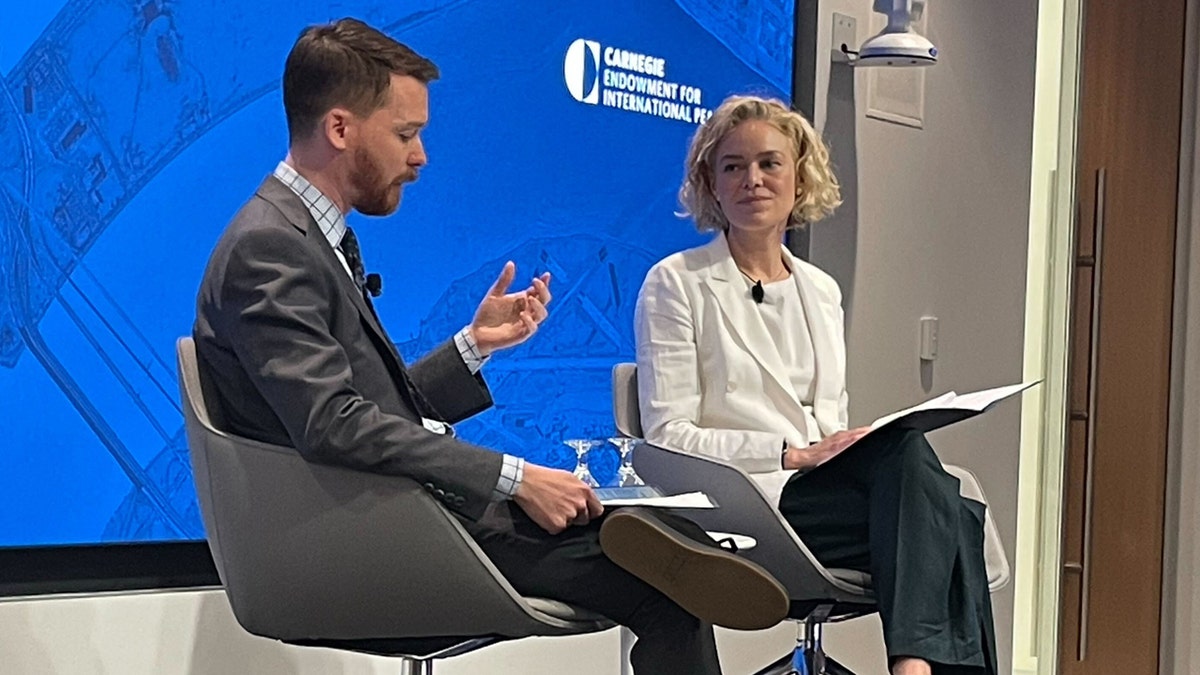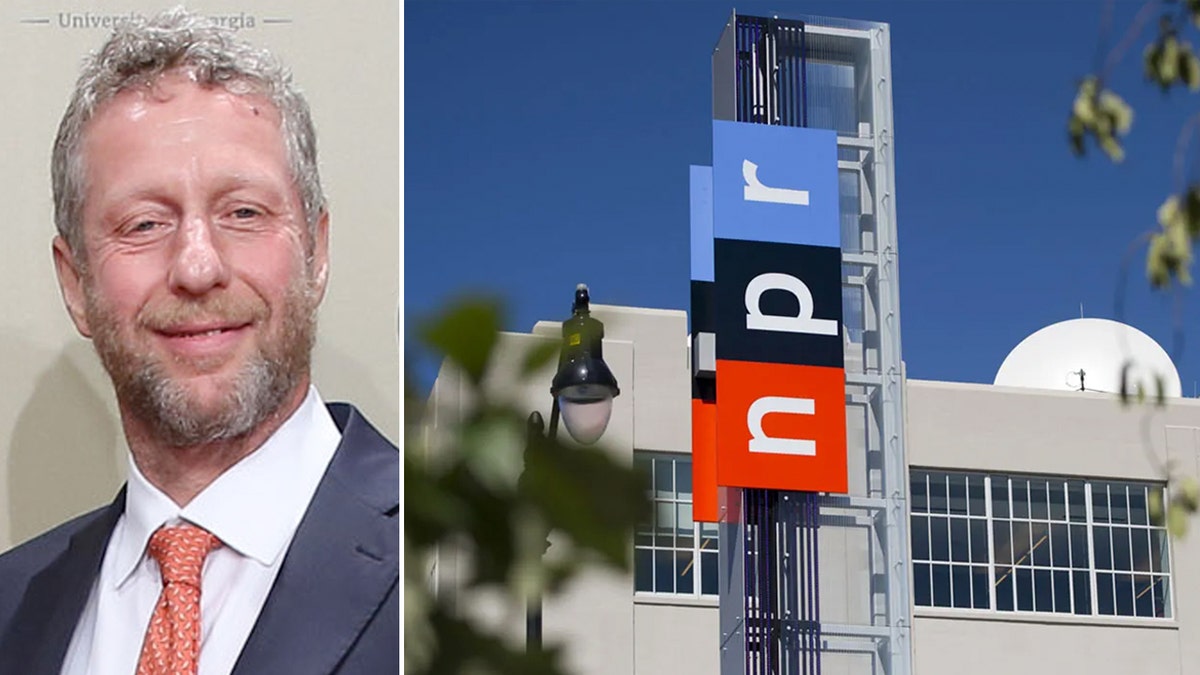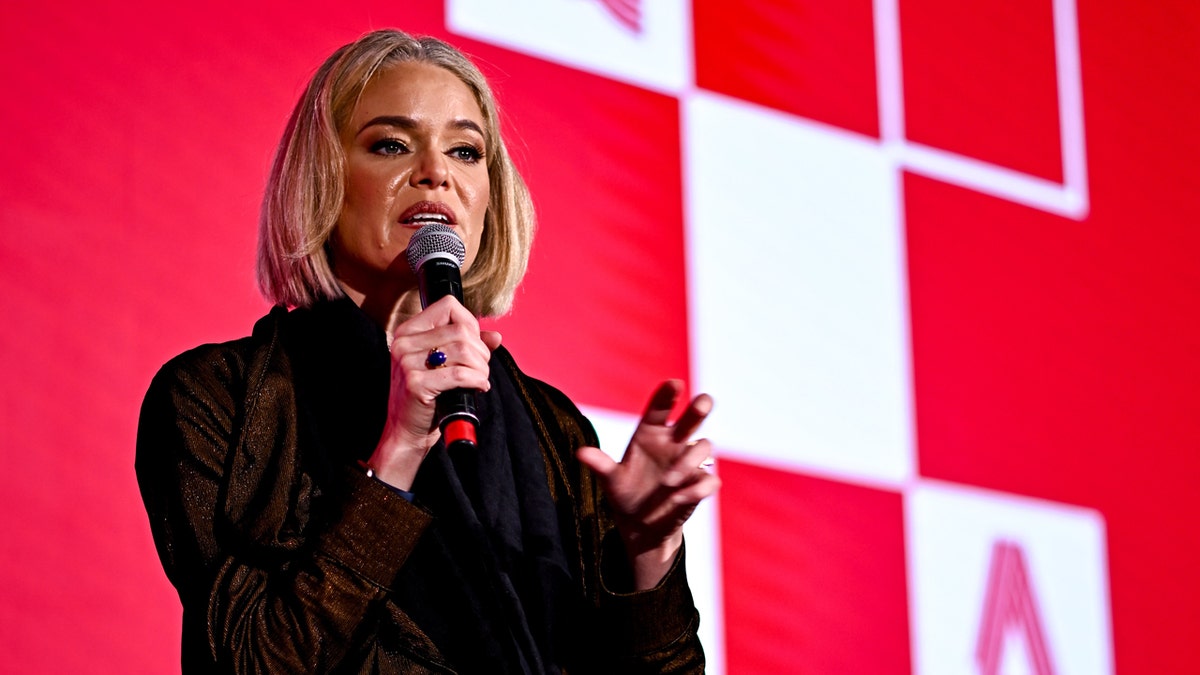‘The Five’: NPR whistleblower resigns while calling out the company’s CEO
‘The Five’ co-hosts discuss how a GOP senator is looking to potentially cut funding to NPR after whistleblower calls out network.
Embattled NPR president and CEO Katherine Maher sidestepped a question about whether she should prioritize "viewpoint diversity" in the newsroom in the wake of the resignation of a veteran editor who sounded the alarm about the organization's liberal groupthink.
During a conversation Wednesday at the Carnegie Endowment for International Peace, Maher was asked about "viewpoint diversity," a topic NPR's senior business editor Uri Berliner tackled last week in his bombshell essay in The Free Press, which resulted in his suspension and exit following reported "turmoil" that erupted among colleagues.
"Is that kind of diversity something that you track or should track internally, or how do you get a handle on whether those things are actually happening or not?" Carnegie senior fellow Jon Bateman, who moderated the "Disinformation, Journalism, and Technology" event, asked.
"I think that's reflected in the stories, right?" Maher responded. "I think that's reflected in what is the audience that we serve and how much value do they get out of our work. Tracking individual viewpoints- I mean, this is the thing about journalism is that, of course, people come from all sorts of backgrounds. They have different lived experiences, but they come to the table to do the work and uphold journalistic ethics and integrity. And that means reporting stories based on the facts. That means reporting stories matter. That means ensuring that we're rigorous with our sourcing. That means ensuring that we are focused on delivering what is accurate and what we know about the world today and then updating it again, right? Because the news is constantly changing and we're going to constantly need to follow those stories to make sure that we're really doing it well."
NPR WHISTLEBLOWER URI BERLINER RESIGNS: ‘I CANNOT WORK IN A NEWSROOM WHERE I AM DISPARAGED’

Carnegie senior fellow Jon Bateman and NPR CEO Katherine Maher (Cortney O'Brien/Fox News Digital)
"Now that is what the most important work of journalism actually is. Are we covering the stories from a wide enough variety of perspectives? Is it reflected in how well the audience feels served? Do we have a wide enough audience that is representative of our nation? And so that, I think, is the priority and that's actually the way that we should be thinking about this," she added.
Maher, who joined NPR last month, repeatedly insisted she has no editorial control over NPR's coverage. She also said she never had the chance to meet Berliner, telling Bateman, "I wish in some ways that I had had that chance so that we could have talked about what his concerns were."
"I don't have any editorial guidance on the newsroom, but it would have been interesting to hear and be able to think about structurally what can we do," Maher said before pointing to quarterly meetings with NPR stations she implemented and a monthly newsroom meeting addressing NPR's coverage.
She continued, "I think another piece of that is making sure we have active and robust debate in the newsroom from a wide variety of perspectives so that those conversations are being had. Again, that is something that is a newsroom leadership imperative. But giving people the ability to feel as though, that those conversations are welcomed, is creating a culture where those conversations are welcomed. Those are incredibly important priorities for us in order to be of service to the widest number of people."
5 THINGS VETERAN NPR EDITOR EXPOSED IN STUNNING CRITICISM OF OWN EMPLOYER’S LIBERAL BIAS
That isn't exactly how Berliner felt in the statement he released announcing his resignation Wednesday from NPR after 25 years at the outlet.
"I am resigning from NPR, a great American institution where I have worked for 25 years. I don’t support calls to defund NPR. I respect the integrity of my colleagues and wish for NPR to thrive and do important journalism. But I cannot work in a newsroom where I am disparaged by a new CEO whose divisive views confirm the very problems at NPR I cited in my Free Press essay," Berliner said.

Longtime NPR editor Uri Berliner, who was serving a five-day suspension for blowing the whistle on liberal bias at the organization, announced Wednesday he resigned. (Getty Images)
Berliner was referring to Maher's social media posts, which have surfaced in recent days displaying liberal activism and woke ideologies.
In his essay, Berliner criticized NPR's mishandling of Russiagate, the COVID lab leak theory, and the Hunter Biden laptop, arguing the 2016 election of Donald Trump quickly encouraged NPR journalists to find ways to "damage or topple" him as president.
Berliner also revealed that among editorial staff in NPR's D.C. headquarters, 87 were registered Democrats and zero were Republicans, which helped drive his public plea for viewpoint diversity at the organization. He also shared how NPR reporters are supposed to enter in demographic data like the race and gender of people they talk to for stories, in order to track the diversity of subjects and sources.
His piece angered colleagues, with some telling in-house media reporter David Folkenflik they didn’t want to work with him any longer. Berliner was suspended for five days without pay and NPR told him it was a "final warning" and he would be shown the door if he violated NPR's policy about appearing on other news platforms without seeking permission.
CLICK HERE TO GET THE FOX NEWS APP
Instead, he walked away on his own terms.
Reached for comment on Berliner's resignation, a spokesperson told Fox News Digital, "NPR does not comment on individual personnel matters."

NPR defended embattled chief executive Katherine Maher against "online actors with explicit agendas" on Wednesday. (Harry Murphy/Sportsfile for Web Summit Qatar via Getty Images)









































